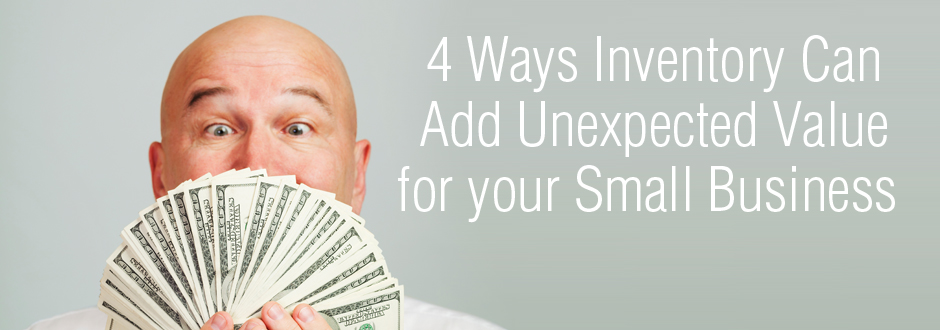Wasp Barcode Technologies: The Barcode Solution People
4 Ways Inventory Can Add Unexpected Value for your Small Business

So you have this small business. What now? Assuming your goal is to generate enough revenue to turn a profit, you’re likely consistently looking for ways to add value. The solution can be simple: inventory.
As a small business owner, you already understand the important role inventory plays in your business. Here, at Wasp, we also understand the importance of
managing inventory and how it goes hand in hand with your small business. Accounting for your inventory seems straightforward, but it can actually add unexpected value. Here’s how.
Taxes
Inventory can significantly impact your taxes. When you report taxable income to the IRS, you’re allowed to deduct your inventory costs. You can choose to list the cost (the lower of cost or market value) or even “other.” Each of these methods could yield different figures, but they’ll all affect the amount of money you can deduct from your income for tax purposes. Stockpiled inventory costs you money at tax time, so beware! The IRS views inventory as money in the bank until you use it, even though you have already purchased it.
 Selling or Buying a Business
Selling or Buying a Business
If you decide to sell a business, you should be paid for your inventory. You can use a simple
valuation method to calculate the worth of your small business. You should also be paid for other expenses, like the cost of labor to warehouse and maintain the inventory. Your materials and supplies can also be reimbursed.
If you decide to buy a business, you will have to compensate the owner for inventory on hand. It’s in your best interest to value the inventory as low as possible, while it’s in the owner’s best interest to value it as high as possible. If both parties agree on the cost basis, there shouldn’t be an issue as you can count the entire inventory and verify the cost paid on invoices.
Cash Flow
The way you value inventory affects the amount of minimum safety stock you have on hand. If your goal is to keep $75,000 worth of inventory and you use the cost basis, then you have an easy task. If you use the retail basis, then be sure you are accurately marking up inventory based on what you paid. Most importantly, don’t assume the retail price represents a fair mark-up value. Spending too much on inventory increases your company’s cash flow, and, if you buy large quantities of inventory and it doesn’t move, you don’t make that money back.
 Collateral for Lenders
Collateral for Lenders
You can use inventory as collateral for a loan, which includes finished goods. There are several kinds of inventory financing including blanket inventory lien, floor planning, and field warehousing. Field warehousing is the most secure type of loan for the lender because the loan is made to a small business owner on the basis of goods held in public warehouses approved by the lender or in a field warehouse managed by a third party. Regardless of which loan you choose, the lender will typically request an inventory valuation. You can’t get a loan based on the retail value of the inventory. Use your cost basis when you present inventory value to lenders and expect to receive only a percentage of that value.
What do all of these examples prove? Inventory can be used as an all-encompassing asset for your small business.
Inventory provides more business for your company as it adds unexpected value to your revenue. Utilize Wasp’s solutions to take your small business to the next level without the cost or hassle.
 So you have this small business. What now? Assuming your goal is to generate enough revenue to turn a profit, you’re likely consistently looking for ways to add value. The solution can be simple: inventory.
As a small business owner, you already understand the important role inventory plays in your business. Here, at Wasp, we also understand the importance of
So you have this small business. What now? Assuming your goal is to generate enough revenue to turn a profit, you’re likely consistently looking for ways to add value. The solution can be simple: inventory.
As a small business owner, you already understand the important role inventory plays in your business. Here, at Wasp, we also understand the importance of  Selling or Buying a Business
Selling or Buying a Business Collateral for Lenders
Collateral for Lenders

